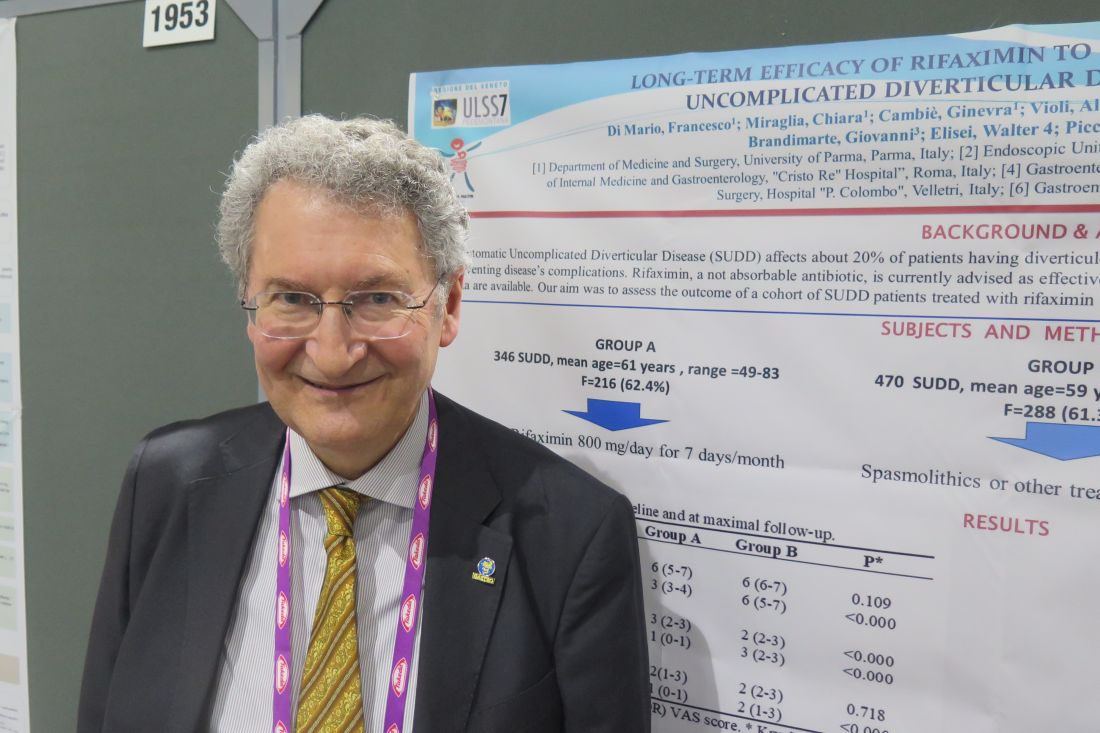SAN DIEGO – Rifaximin relieves symptoms and reduces the risk of disease-related complications in patients with symptomatic uncomplicated diverticular disease (SUDD) of the colon, results from a retrospective study showed.
“The majority of studies published on this topic are not exactly the picture of real life, because they’re conducted on a selected sample of patients queued into the hospital,” lead study author Francesco Di Mario, MD, said at the annual Digestive Disease Week. Dr. Di Mario sought long-term data “from general practitioners – data from real life.”
For an 8-year follow-up study, Dr. Di Mario, professor of gastroenterology at the University of Parma (Italy), and colleagues at several general physician practices in Italy enrolled two groups of patients. The study group (group A) consisted of 346 SUDD patients who were treated with rifaximin 800 mg/day for 7 days every month. Their median age was 64 years, and 63% were female. The control group (group B) included 470 SUDD patients who were taking spasmolithics or any other treatment on demand. Their median age was 65 years, and 61% were female.
The researchers administered a 10-point visual analog scale (VAS) to assess left lower abdominal pain and bloating, with a score of 10 representing the most severe symptoms. Daily bowel movements were also reported.
The median baseline VAS score for pain was 6 in groups A and B. After 8 years of follow-up, the VAS scores for the two groups were 3 and 6, respectively (P less than .0001), and both bloating and daily bowel movements were significantly reduced in group A (P less than .0001).
As for the impact of rifaximin on other outcomes, acute diverticulitis occurred in 9 patients in group A (2.6%) and in 21 patients in group B (4.5%), a difference that reached statistical significance (P = .155). In addition, four patients (1.2%) in group A and nine patients (1.9%) in group B had surgery (P = .432). No disease-related deaths occurred in group A, but two patients in group B died (0.4%; P = .239). No side effects were recorded during the entire study period.
The researchers reported having no financial disclosures.


